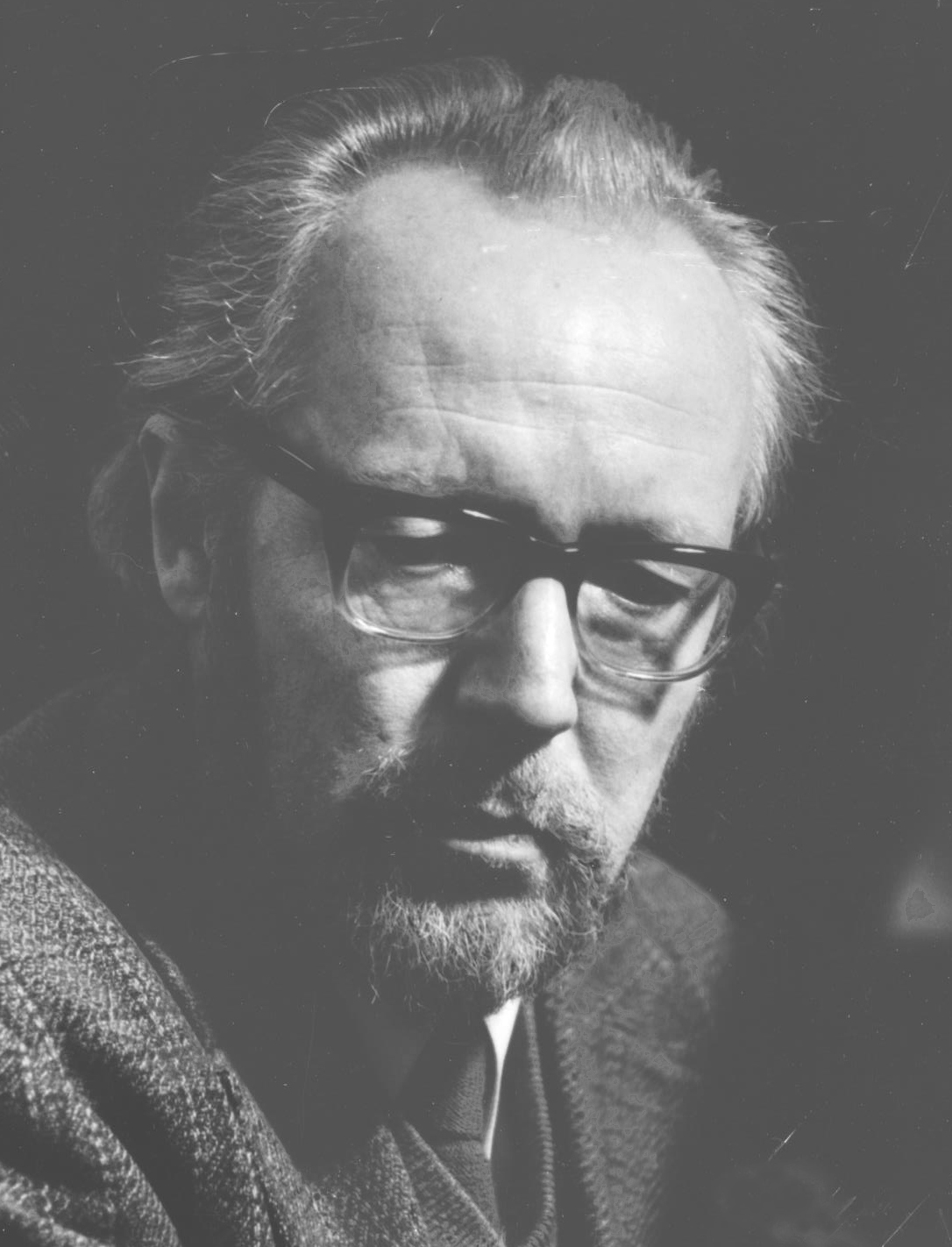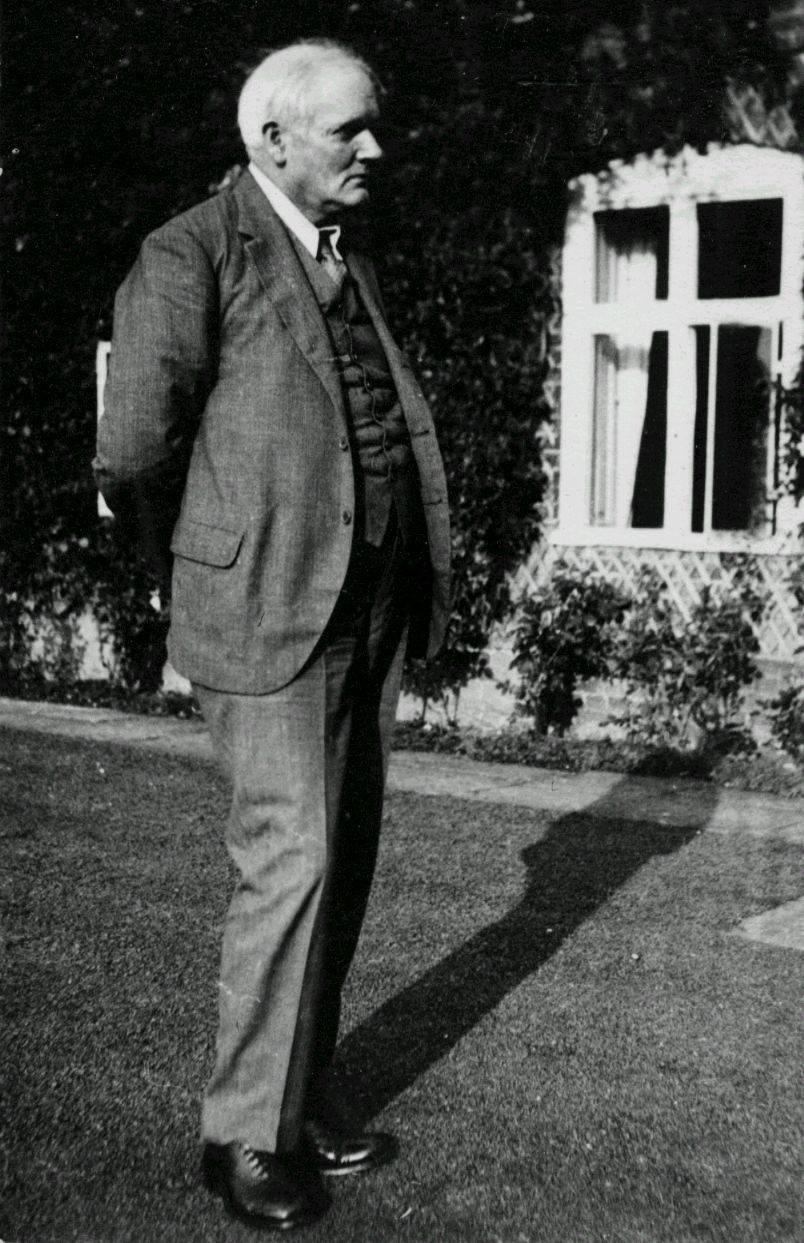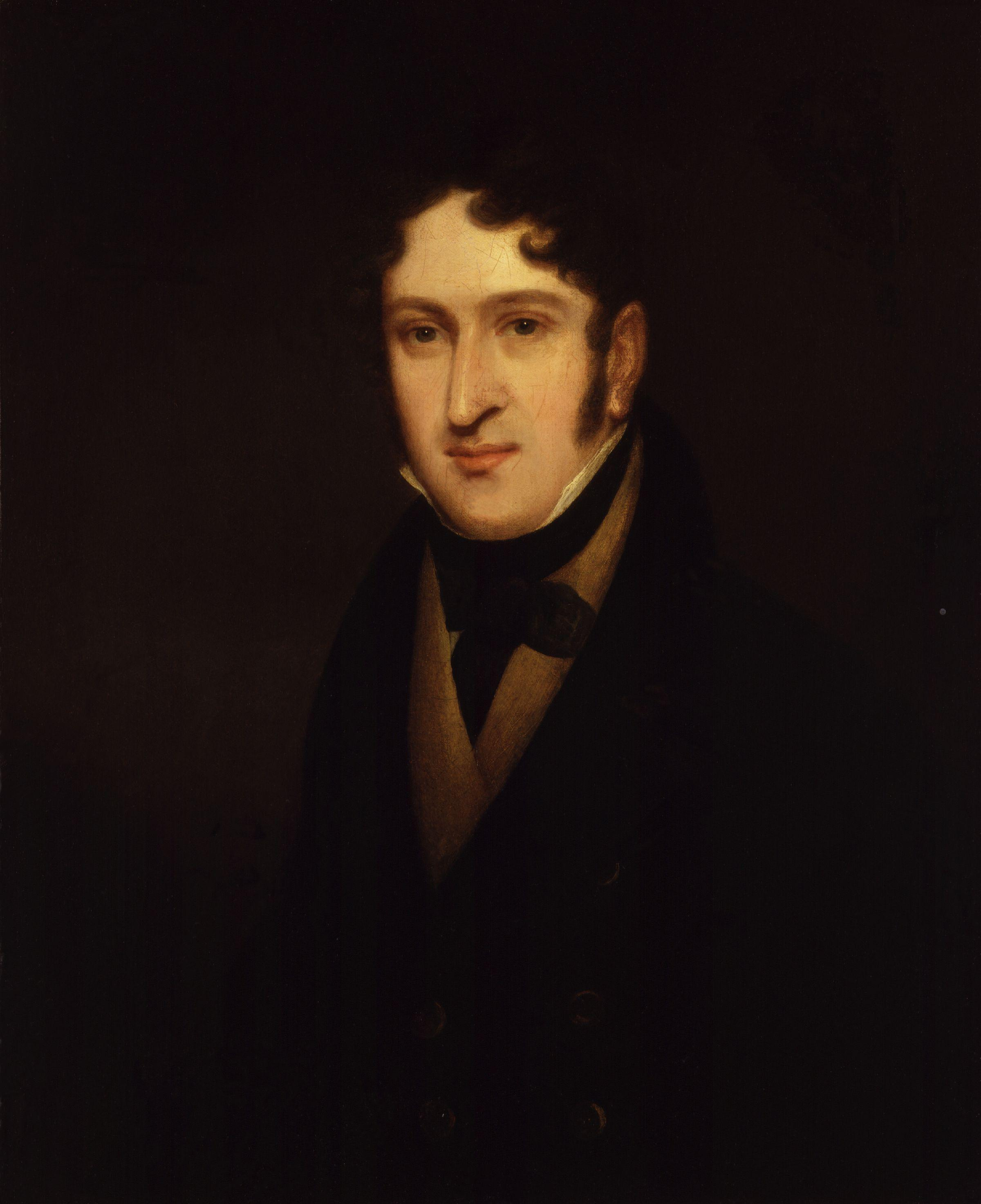|
Reid Professor Of Music
The Reid Professorship in Music was a position founded within the University of Edinburgh in 1839 using funds provided in a bequest from General John Reid. History On his death in 1807 General John Reid left a fortune of more than ┬Ż50,000. Subject to the life-interest of his only daughter, who had married a Mr Robertson without his consent, he left this money to found a professorship of music in the University of Edinburgh, and to be further applied to the purchase of a library, or otherwise laid out in such a manner as the principal and professors of the university might think proper. Accordingly, in 1839, after the daughter's death, the chair of music was founded. The fund had increased by that time to about ┬Ż70,000; but the university authorities largely availed themselves of the discretion given to them in the application of the money. They diverted the bulk of it from the primary object to the further uses mentioned in Reid's will, and they fixed the professor's salary at ┬ ... [...More Info...] [...Related Items...] OR: [Wikipedia] [Google] [Baidu] |
University Of Edinburgh
The University of Edinburgh ( sco, University o Edinburgh, gd, Oilthigh Dh├╣n ├łideann; abbreviated as ''Edin.'' in post-nominals) is a public research university based in Edinburgh, Scotland. Granted a royal charter by King James VI in 1582 and officially opened in 1583, it is one of Scotland's four ancient universities and the sixth-oldest university in continuous operation in the English-speaking world. The university played an important role in Edinburgh becoming a chief intellectual centre during the Scottish Enlightenment and contributed to the city being nicknamed the " Athens of the North." Edinburgh is ranked among the top universities in the United Kingdom and the world. Edinburgh is a member of several associations of research-intensive universities, including the Coimbra Group, League of European Research Universities, Russell Group, Una Europa, and Universitas 21. In the fiscal year ending 31 July 2021, it had a total income of ┬Ż1.176 billion, of ... [...More Info...] [...Related Items...] OR: [Wikipedia] [Google] [Baidu] |
John Reid (British Army Officer)
John Reid (13 February 1721 ŌĆō 6 February 1807), previously known as John Robertson, was a British army general and founder of the chair of music at the University of Edinburgh. Strongly connected to Edinburgh, he gives his name to the Reid School of Music. Reid Concerts and Reid Orchestra. Early life Born John Robertson, he changed his name from Robertson to Reid (the name given to his paternal ancestor on account of the colour of his red hair) on inheriting the Straloch estate in Perthshire from his father. He was the son of Alexander Robertson of Straloch, whose forefathers had for three centuries been known as the Barons Ruadh, Roy or Red, though the family name had remained Robertson, a tradition not followed by the General. Reid's father, Alexander Robertson, took an active part and incurred heavy losses in resisting the Jacobite rising of 1745. He was of the same stock as the Robertsons of Struan, Matilda, the granddaughter of Duncan, third Baron of Struan, having ma ... [...More Info...] [...Related Items...] OR: [Wikipedia] [Google] [Baidu] |
Nigel Osborne
Nigel Osborne (born 23 June 1948) is a British composer, teacher and aid worker. He served as Reid Professor of Music at the University of Edinburgh and has also taught at the Hochschule für Musik, Theater und Medien Hannover. He is known for his extensive charity work supporting war traumatised children using music therapy techniques, especially in the Balkans during the disastrous Bosnian War, and in the Syrian conflict. He speaks eight languages. Osborne was born in Manchester, England, to a Scottish family. He studied composition with Kenneth Leighton, Egon Wellesz, and Witold Rudziński. His compositions include the opera ''The Electrification of the Soviet Union'', Concerto for Flute and Chamber Orchestra commissioned by the City of London Sinfonia, ''I am Goya'', ''Remembering Esenin'', and ''Birth of the Beatles Symphony''. Osborne retired from his Edinburgh University position in 2012, and is now working internationally as freelance composer, arranger and aid work ... [...More Info...] [...Related Items...] OR: [Wikipedia] [Google] [Baidu] |
Kenneth Leighton
Kenneth Leighton (2 October 1929 ŌĆō 24 August 1988) was a British composer and pianist. His compositions include church and choral music, pieces for piano, organ, cello, oboe and other instruments, chamber music, concertos, symphonies, and an opera. He had various academic appointments in the Universities of Leeds, Oxford and, primarily, Edinburgh. Biography Leighton was born in Wakefield, Yorkshire, on 2 October 1929, to parents of modest means, who noted his musical ability as a child and enrolled him as a chorister at Wakefield Cathedral. Encouraged by his mother and the parish priest (who helped obtain a piano), he began piano lessons and progressed precociously. In 1940, he gained a place at the Queen Elizabeth Grammar School, played at school assemblies and concerts, and composed settings of poetry for voice and piano and solo piano pieces (including the Sonatina Op.1a, 1946, his first published work). While still at school (in 1946) he obtained the ... [...More Info...] [...Related Items...] OR: [Wikipedia] [Google] [Baidu] |
Sidney Newman
Sidney Thomas Mayow Newman, Commander of the Order of the British Empire, CBE, Fellow of the Royal Society of Edinburgh, FRSE (4 March 1906 ŌĆō 22 September 1971) was a music scholar, academic, pianist and conductor."Prof Sidney Newman", ''The Times'' (London), 25 September 1971, p. 14."Newman, Prof. Sidney Thomas Mayow" ''Who Was Who'' (online edition, Oxford University Press, December 2018). Retrieved 19 December 2018. Born in London, he was educated at Christ Church, Oxford, where he was organ scholar from 1924 to 1928, took a first-class Bachelor of Arts degree in classics and then read for the Bachelor of Music degree; he then studied the violin, piano, conducting and Musical composition, composition at the Royal College of Music between 1929 and 1930. In 1930, ... [...More Info...] [...Related Items...] OR: [Wikipedia] [Google] [Baidu] |
Donald Tovey
Sir Donald Francis Tovey (17 July 187510 July 1940) was a British musical analyst, musicologist, writer on music, composer, conductor and pianist. He had been best known for his '' Essays in Musical Analysis'' and his editions of works by Bach and Beethoven, but since the 1990s his compositions (relatively small in number but substantial in musical content) have been recorded and performed with increasing frequency. The recordings have mostly been well received by reviewers. Life He was born at Eton, Berkshire, the son of Duncan Crookes Tovey, an assistant master at Eton College, and his wife, Mary Fison. As a child Tovey was privately educated exclusively by Sophie Weisse. She was impressed by his musical gifts evident at an early age and took it upon herself to nurture him. Through her network of associates he was introduced to composers, performers and music critics. These included Walter Parratt, James Higgs and (from the age of 14) Hubert Parry for composition. Also in S ... [...More Info...] [...Related Items...] OR: [Wikipedia] [Google] [Baidu] |
Frederick Niecks
Frederick Niecks (3 February 184524 June 1924) was a German musical scholar and author who resided in Scotland for most of his life. He is best remembered for his biographies of Fr├®d├®ric Chopin and Robert Schumann. Biography Friedrich Maternus Niecks was born in D├╝sseldorf, son of a conductor and teacher; his grandfather was a professional musician. He studied music under his father; he later studied violin under Leopold Auer and others, and studied piano and composition under Julius Tausch. At age 13 he made his debut playing Charles Auguste de B├®riot's Violin Concerto No. 2, then joined the Musikverein orchestra, with whom he remained until age 21. In 1868 he expressed a desire to move to Great Britain, and Alexander Mackenzie invited him to settle in Scotland, where he became viola player in Mackenzie's string quartet in Edinburgh and an organist and teacher in Dumfries. In 1879 he became a regular contributor to ''The Musical Times''. In 1884 he published a ''C ... [...More Info...] [...Related Items...] OR: [Wikipedia] [Google] [Baidu] |
Herbert Oakeley
Sir Herbert Stanley Oakeley, (22 July 1830 ŌĆō 26 October 1903) was an English composer, most well known for his role as Professor of Music at the University of Edinburgh. Prior to his appointment to this role in 1865 he established his reputation as an organist, composer, and musician. During his tenure at the University of Edinburgh he founded a number of university musical societies across Scotland, most notably the Edinburgh University Music Society, and successfully resolved the university's Reid School of Music into a Faculty able to award degrees to its graduates. He socialized with and mentored contralto, composer, and festival organizer Mary Augusta Wakefield. Life He was born at Ealing on 22 July 1830. He was second son of Sir Herbert Oakeley, 3rd Baronet. He was educated at Rugby and at Christ Church, Oxford, he graduated B.A. in 1853 and proceeded M.A. studies in 1856. He studied with Stephen Elvey. In 1865, he was elected Reid Professor of Music at Edinburgh Uni ... [...More Info...] [...Related Items...] OR: [Wikipedia] [Google] [Baidu] |
John Donaldson (music Scholar)
John Donaldson (baptised 5 January 1789; died 12 August 1865) was an English music scholar and educator.Christopher D. S. Field"Donaldson, John" ''Grove Music Online'' (Oxford University Press, 2001). Retrieved 18 December 2018.W. B. Squire, rev. John Purser"Donaldson, John" ''Oxford Dictionary of National Biography'' (Oxford University Press, 2004). Retrieved 18 December 2018. His father, John, was an organ builder operating in Newcastle upon Tyne and York. The younger Donaldson moved to Glasgow and opened a music academy in 1816, but in the 1820s qualified as an advocate and ceased teaching. He was nevertheless well-regarded as a pianist and produced a Sonata in G minor in 1822. He developed an interest in acoustics. According to ''The New Grove Dictionary of Music and Musicians'', he first took an interest in the Reid Professorship of Music at the University of Edinburgh in 1838; the ''Oxford Dictionary of National Biography The ''Dictionary of National Biography'' (''DNB' ... [...More Info...] [...Related Items...] OR: [Wikipedia] [Google] [Baidu] |
Henry Bishop (composer)
Sir Henry Rowley Bishop (18 November 178730 April 1855) was an English composer from the early Romantic era. He is most famous for the songs "Home! Sweet Home!" and "Lo! Hear the Gentle Lark." He was the composer or arranger of some 120 dramatic works, including 80 operas, light operas, cantatas, and ballets. Bishop was Knighted in 1842. Bishop worked for all the major theatres of London in his era ŌĆō including the Royal Opera House at Covent Garden, the Theatre Royal, Drury Lane, Vauxhall Gardens and the Haymarket Theatre, and was Professor of Music at the universities of Edinburgh and Oxford. His second wife was the noted soprano Anna Bishop, who scandalised British society by leaving him and conducting an open liaison with the harpist Nicolas-Charles Bochsa until the latter's death in Sydney. Life Bishop was born in London, where his father was a watchmaker and haberdasher. At the age of 13, Bishop left full-time education and worked as a music-publisher with his cousin. ... [...More Info...] [...Related Items...] OR: [Wikipedia] [Google] [Baidu] |
John Thomson (composer)
John Thomson (28 October 1805 – 18 May 1841) was a Scottish classical composer. He was born in Sprouston, Roxburghshire, the son of Andrew Mitchell Thomson, the minister of Sprouston Church. Among Thompson's compositions admired by his younger contemporary Felix Mendelssohn when they met in Edinburgh in the summer of 1829 was a G minor piano trio of 1826, in which stormy and sometimes fierce passages are mixed with Schubertian warmth. Another favourite of Mendelssohn's was his lively rondo of 1828. They became friends and Fanny Mendelssohn is cited as saying that she liked Thomson "best of all the Britons I know". Thomson's C major trio is described as a fine work. Thomson studied in Germany with a letter of introduction to the Mendelssohn family, and his ''Drei Lieder'' were published in Leipzig in 1838. John Purser contends that we have to look to Schumann to find anything comparable to these songs published two years before Schumann composed any songs in his mature s ... [...More Info...] [...Related Items...] OR: [Wikipedia] [Google] [Baidu] |
Professorships At The University Of Edinburgh
Professor (commonly abbreviated as Prof.) is an academic rank at universities and other post-secondary education and research institutions in most countries. Literally, ''professor'' derives from Latin as a "person who professes". Professors are usually experts in their field and teachers of the highest rank. In most systems of academic ranks, "professor" as an unqualified title refers only to the most senior academic position, sometimes informally known as "full professor". In some countries and institutions, the word "professor" is also used in titles of lower ranks such as associate professor and assistant professor; this is particularly the case in the United States, where the unqualified word is also used colloquially to refer to associate and assistant professors as well. This usage would be considered incorrect among other academic communities. However, the otherwise unqualified title "Professor" designated with a capital letter nearly always refers to a full professor. ... [...More Info...] [...Related Items...] OR: [Wikipedia] [Google] [Baidu] |






